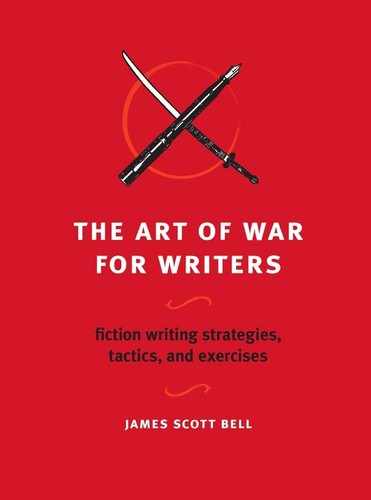
247
76
For long-term success,
design a typical writing day
and stick to it.
Writing is, ultimately, a matter of cheeks on chair and
words on page. You must develop a certain amount of
discipline and as much of a schedule as you can.
Of course, all writers are not wired the same way.
Some respond well to timetables and rigidity. Others
need to hang loose. Know thyself, but go through the
exercise of designing a schedule, and see if you can stick
to it for a while. You can always tweak it later.
I’ve interviewed some of the best writers out there
about their “typical” writing days. As you’ll see, they are
all across the board. Somewhere in the following is an
idea or two you can adopt as your own.
I start at 5:15 A.M. by fl ossing (always fl oss, every-
one), then meditating (twenty minutes), then spend-
ing forty-fi ve minutes getting my kid (seventeen) up,
breakfasted, and off to the bus for school. Then
I clean the kitchen, make coffee, read the paper
(fi fteen minutes, mostly the sports), and fi nally take
my second cup of joe up to my study where, by 8:30,
I have answered a few e-mails and started writing.
Z4273i_243-259.indd 247Z4273i_243-259.indd 247 9/24/09 11:21:43 AM9/24/09 11:21:43 AM

248
The more I know what I am doing, the more time I
can spend doing it. Five to six pages a day is my goal.
After fi ve hours, I often begin to get loopy. Then I
begin taking breaks and answering more e-mails. By
mid afternoon, I am asleep in my desk chair, hoping
the phone will ring and wake me up.
—Michael Palmer
I don’t know that I have ever been fortunate
enough to have a typical writing day. If I ever do, it
would go something like this: Get up, have coffee
with my wife, answer e-mails, go to breakfast at
one of our favorite places or eat it at home, then
write until I run dry. Dinner with friends.
—Stephen Coonts
The word “typical” is not in my vocabulary. Right
from the get-go, I was taught to think indepen-
dently, to think outside the box, and, most im-
portantly, to see the big picture. As I’ve already
said, I’m thinking about a project 24/7. That
means, for instance, I always have a pad and pen
beside my bed. Invariably, in the midst of a novel,
I’ll have a fi stful of thoughts the moment after I
turn out the lights at night. I used to write only in
the morning, but over the years, that’s changed.
Now I often don’t get started writing until three
or four in the afternoon. Why this is, I can’t say;
Z4273i_243-259.indd 248Z4273i_243-259.indd 248 9/24/09 11:21:43 AM9/24/09 11:21:43 AM

249
writing is a basically irrational experience. And
it’s hard work, but try telling that to anyone who
doesn’t write.
—Eric Van Lustbader
When I’m under deadline it’s nearly 24/7—well,
maybe 18/7, and when I’m not, I actually go to
the dentist, doctor, have the car washed, and go
bowling. I always try to get in a little exercise and
fun things with friends, but not when a deadline
looms. If there’s anything that’s constant, it’s that
I’m a morning person and write in the mornings.
—Lisa Jackson
To be a productive writer you have to have an iron
will. The Internet is probably the best and worst
thing to ever happen to writers. It’s great for re-
search, but can be a terrible distraction when you
need to focus on getting your work done. I have
a goal of 2,500 words per day, which is about
fi ve single-spaced pages. As soon as the quota is
hit, I get to go do something else, but during a
typical day, I am normally at my desk the entire
time. One of the tricks I learned from one of my
writing professors at USC, Stanley Ralph Ross,
was to never end the day at the end of a chapter.
If that’s where I am, I begin the next chapter and
try to get a couple of sentences into it. This way
Z4273i_243-259.indd 249Z4273i_243-259.indd 249 9/24/09 11:21:43 AM9/24/09 11:21:43 AM

250
I’m not worried about where I should go next, I
am already there. When I arrive at my desk the
next day, the wheels are already spinning, and I’m
excited about where my thriller is going.
—Brad Thor
I write fi ve or six days a week. I make a huge effort
to not work all seven days—which is all too easy
for me to do. I spend one hour thinking about the
book in the morning—walking or swimming—plan-
ning what I am going to write that day, where the
book is going. Then I write from four to fi ve hours
writing during the fi rst-draft process. From 12
P.M.
to 2
P.M. and then 3 P.M. to 6 P.M. Give or take. In
between, I take a walk, go get coffee, or talk on
the phone. After the fi rst draft (and I usually have
three to four drafts), I usually work more than
that—from six to nine hours.
—M.J. Rose
These days, I am no longer capable of the ten-
hour stretches I used to put in, day after day,
night after night. My workday begins around 11
in the morning, and there is a break for lunch
around 1:30 or 1:45. At 2:00, while eating lunch,
I wander through Llanview, Pennsylvania, an
amazing little city where anything can happen:
amnesia, resurrections, dopplegängers, serial
Z4273i_243-259.indd 250Z4273i_243-259.indd 250 9/24/09 11:21:43 AM9/24/09 11:21:43 AM

251
killers, arson, rapes, visitations from the heav-
enly realms … I’m telling you, in Llanview they
live life with a capital L. At 3:30 or thereabouts,
I return to my desk and work till about 7:00. If
I get in fi ve hours of work, it’s a good day, and I
know I’ve had it until the next time.
—Peter Straub
I fi nd there’s a ratio between thinking and writ-
ing, and when I’m just getting started on a book,
the ratio is skewed heavily toward thinking, but as
the story progresses and I fi gure things out, I can
write more and need to think less. By the time I’ve
reached the last 10 percent of the book, I’ve dis-
covered the whole story out and it’s pure writing—
an electrifying feeling, like I’ve grabbed the back
of a comet and am struggling just to hang on. So
at the start of things, I spend a lot of time walk-
ing and thinking, and a 500-word day feels great.
In the middle, I feel comfortable with 1,000 or
so, and I’m spending more time in front of the
computer. Two thousand always feels good. By
the last third of the book, my average gets closer
to 3,000, and I’m spending close to eight hours a
day writing, with sanity breaks mixed in here and
there. The most I’ve ever written in a day (twenty-
two straight hours), with my fi ngers a blur and my
Z4273i_243-259.indd 251Z4273i_243-259.indd 251 9/24/09 11:21:43 AM9/24/09 11:21:43 AM
..................Content has been hidden....................
You can't read the all page of ebook, please click here login for view all page.
